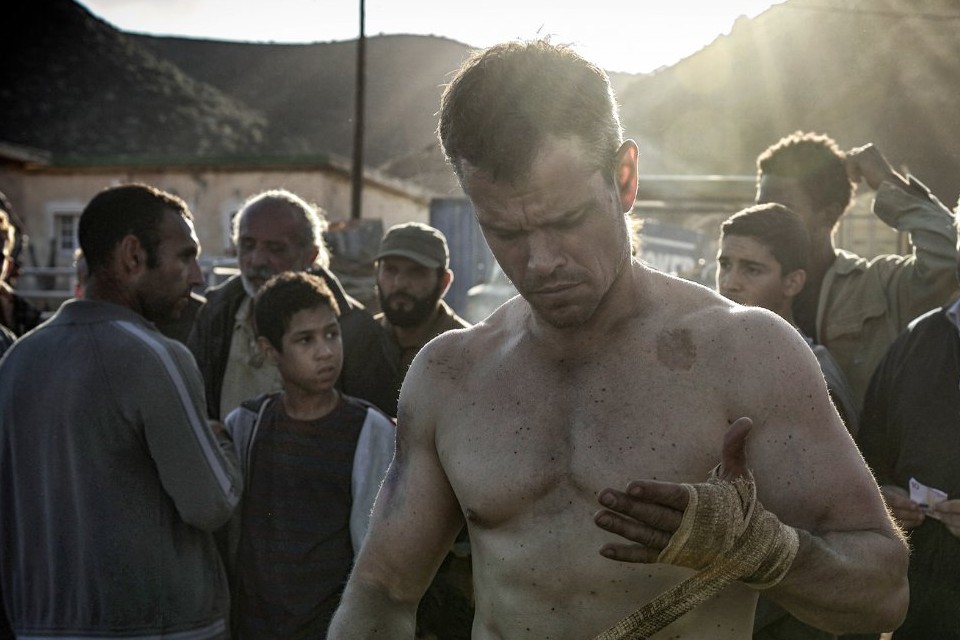AUGUST 8, 2016
It’s hard to believe that it’s been nine years since Matt Damon last played former CIA assassin Jason Bourne.
Damon first played the operative in 2002’s “The Bourne Identity,” the one Bourne film that hewed most closely to spy author Robert Ludlum’s series of novels. That first film was directed by Doug Liman, but the next two films, “The Bourne Supremacy” (2004) and “The Bourne Ultimatum” (2007), were helmed by one of the world’s great directors, Paul Greengrass, to enormous acclaim. (In fact, “Ultimatum” was nominated for 3 Oscars and won all 3 categories.)
At that time, Damon and later Greengrass announced that they were through with “Bourne,” so a fourth film was done without them. “The Bourne Legacy” (2012), directed by Tony Gilroy and starring Jeremy Renner as a completely different character, was fine, but it was not the same without Damon & Greengrass. So when the duo announced that they would return to the franchise with “Jason Bourne,” the film immediately rose to the top of my list of the most anticipated movies of the summer.
Nine years have taken their toll on Jason Bourne. He’s finally recovered from his amnesia and is now making money fighting in illegal pickup brawls throughout Europe. His former colleague Nicky Parsons (Julia Stiles) has become a hacktavist who successfully breaks into the files of the CIA’s black ops programs and downloads information about Bourne’s past that she sets out to deliver to him. Parsons’ hack comes to the attention of CIA Director Robert Dewey (Tommy Lee Jones) and CIA cyber ops head Heather Lee (Alicia Vikander) who tail Parsons and are shocked to see that Bourne is still alive.
Lee believes that Bourne can be brought in from the cold and convinces Dewey to let her try. He agrees but secretly orders an assassin called The Asset (Vincent Cassel) to kill Bourne, with whom The Asset has a personal grudge. (Doesn’t everybody?) Meanwhile, Dewey travels to Las Vegas for a high-profile conference with social media mogul Aaron Kalloor (Riz Ahmed of HBO’s “The Night Of”), who, though having the image of being socially responsible, is actually being used by Dewey’s CIA as a pawn in a mass surveillance scheme to bolster the CIA’s black ops program. Add to that the Bourne/Asset grudge match which has moved to Vegas, and you’ve got quite a conference going on.
Oscar winners Damon, Jones and Vikander are all pros and deliver accordingly. But the real star of “Jason Bourne” is Greengrass, who can shoot action like no other director out there, whether it involves mob scenes (such as in his breakthrough film “Bloody Sunday”) or well-paced suspense (as in his Oscar-nominated work in “United 93”). Here he bookends the films with dazzling car chases — the first through the streets of Athens with Damon and Stiles on a motorcycle weaving in and out through a political demonstration and ending with a spectacular demolition derby on Las Vegas Blvd.
The other element of action directing at which Greengrass excels is the ability to make it clear, even amidst all hell breaking loose around his characters, just where those characters are in the midst of the action. So often you’ll see a film where you lose track of what’s happening to the characters about which you care the most. It sounds like a small detail, but so many other directors are so obsessed with the big explosions, they lose just how much their characters are in peril. One thing about a Greengrass film — you’re never lost.
Still, I just wish that the material was just a little bit better. Not that it’s bad — far from it — but there’s a certain amount of been-there, done-that about the plotting. There’s the shady boss, the assassin, the operative who thinks Bourne is actually a good guy — we’ve been down this road in the other “Bourne” movies, and I just wish that writers Greengrass and Christopher Rouse could have found a fresher collection of characters with which to tell their story.
Still, Damon, who I think is an even better actor now that he was nine years ago, brings an extra bit of weary gravitas to Bourne this time, and that depth helps to give the other familiar character tropes a little extra weight. And there’s that razzle-dazzle that no other director displays the way Paul Greengrass does. A great film? No. But it’s one of the few summer blockbusters where human feelings have a place.
GRADE: B












